|
It is the Thai Government
policy to produce sufficient amount of rice for ever
increasing domestic consumption and some for export. We
will stress on the quality of our product which is
well-known worldwide: the fragrant, long grain variety,
thus maintaining their unique characteristics. We will
continue to further develop fragrant rice (Kao Dawk Mali
105), one of our bestsellers. In addition, we are
committed to improve on rice farming technologies. We
shall continue to upgrade the quality of rice : by
breeding high disease and pest resistant varieties,
introducing the varieties with polygenic resistance or
mixing various resistant varieties in the form of
multi-line to the breeding programme in order to resist
pests and diseases at the same time. We shall also
select and recommend to the farmers the different
varieties appropriate to different soil conditions, for
example varieties which tolerate soil salinity, soil
acidity, etc. Farmers will be assisted to select
suitable land for rice farming. Some unsuitable land
will be diverted to other agricultural activities.
Therefore, farmers can reduce their risks by having
alternative cash crops other than rice.
It is hoped that by doing
so we will be able to improve the quality of life of
Thai farmers. We shall continue to improve the quality
of our rice, lower the cost of production and satisfy
our customers' needs.
In this future plan as
well as in our past efforts Japan has contributed
significantly to the development of Thai rice by
providing technological know-how. Japan has assisted in
human resources development programmes and provided
necessary infra-structure such as buildings, research
facilities, and equipments. She has also assisted in the
development and conservation of certain rice varieties
by setting up the " National Rice Seeds Storage
Laboratory for Genetic Resources" in 1981 . To-date, the
Laboratory has collected and conserved more than 20,000
varieties of rice. During 1982-1986, Japan has provided
the necessary funds to set up 12 seed centers which
spread all over Thailand. Furthermore, it has supported
human resources development and provided training on new
rice production technology and post-harvest technology,
Japanese experts also collaborate with us at many rice
research institutes.
IRRI is another
organization which has played useful roles in the
development of our personnel by supporting Thai
Technicians for further training and research work
overseas. Over the span of more than 30 years, our
cooperation has brought about many great results. Let me
mention a few of them: breeding, strain selection
techniques, pests control and management, use of organic
fertilizers, farming system and mechanization of the
agricultural system.
As a member of the world
population and on behalf of Thai people and Thai
farmers, I would like to take this opportunity to
congratulate you on every progress you have made. I
believe that close collaboration between Japan and IRRI
will bring gratifying rewards to both parties and this
in turn will promote happiness and well-being of the
population of world.
|
|
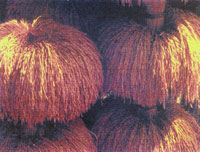
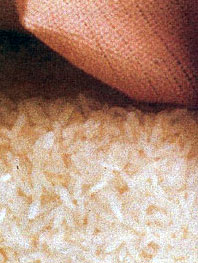

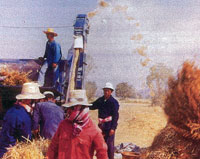
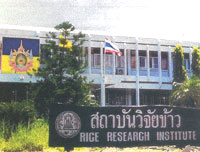
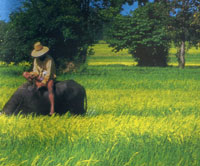 |